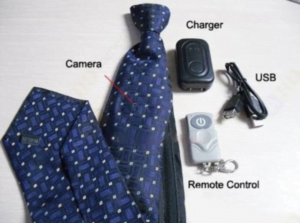This is not a simple issue with a yes or no answer. The legality of recording conversations at work is a grey area, evolving all the time. The Employment Appeals Tribunal has allowed it in some cases but dismissed it in others. It depends on the circumstances of each case and how relevant the covertly recorded evidence might be to a case.
You should talk to an employment law specialist about wanting to record someone at work, if you can.
Can an employee secretly make recordings at work?
Tread carefully. Employers are wising up to the issue and training managers and HR staff to expect that employees might try to secretly record conversations in the workplace. They recognise that tribunals might allow those recordings as evidence.
 If you secretly record a colleague at work because you’re being bullied and you want to prove it, although it’s likely to worsen working relationships and may be against company policy, it doesn’t necessarily mean it will be excluded at an employment tribunal. So you might get it allowed as evidence.
If you secretly record a colleague at work because you’re being bullied and you want to prove it, although it’s likely to worsen working relationships and may be against company policy, it doesn’t necessarily mean it will be excluded at an employment tribunal. So you might get it allowed as evidence.
If you secretly record a meeting at work then you may be in breach of company policy (as before, you’d have to look at the policy to check) and could face a disciplinary hearing. In most cases, if you have secretly recorded a meeting and were present at the meeting that’s likely to be admissible, but recordings, for example, of a disciplinary hearing without you being present are unlikely to be admissible.
Is it legal for an employer to record conversations at work in the UK?
If you are an employer and you want to record a conversation at work, you should do so openly and get the consent of the employee you’re going to record in accordance with the GDPR rules on data. You should:
- Inform anyone you wish to record about the specific purpose of the recording and
- Get their specific written consent which must be freely given (i.e. not under duress) on each occasion .
You cannot presume that because an employee consented to recording one conversation, they will consent to the recording of another. After all, between your requests they might have got legal advice.
Employers are advised to:
- Update the company hand book and disciplinary policies to include a policy to discourage covert recordings;
- Be transparent and honest if they are going to record any conversations or meetings and make it clear in your company documentation when you might want to record a conversation, such as at disciplinary proceedings, grievance proceedings, performance reviews, board and management meetings;
- Ask employees whether they plan to record a meeting and making clear that if they do, it may be regarded as misconduct, which could lead to disciplinary proceedings;
- Be alert to behaviour that might suggest the employee is recording a meeting, such as the employee placing their mobile phone on the table. In such circumstances, to ask the employee to switch off their phone and to make it clear that the meeting will not proceed until this has happened.
It is likely that, if an employer made a secret recording of an employee at work, it would need to meet certain very demanding requirements to be allowed as evidence at an employment tribunal and it is likely to be a breach of GDPR.
When can covert recordings be used as evidence at a tribunal hearing?
The decision in Punjab National Bank v Gosain in 2014, contrary to earlier rulings, allowed a secretly recorded conversation to be admitted as evidence. This case involved sexual harassment, sex discrimination and constructive dismissal. Before her resignation the claimant Ms Gosain attended a grievance meeting which she secretly recorded in which personal comments were made about her and her situation by the managers who attended. One of the things said was that the Managing Director had given the instruction to dismiss her whatever happened in the meeting. The outcome was therefore pre-determined. Another was that key issues the claimant had raised in her grievance letter, namely that she was not being allowed a proper lunch break and issues around her pregnancy, had to be ‘skipped’ - in other words ignored. In addition some comments were made in Punjabi which, when translated, were found to be sexually explicit and inappropriate.
Summary
The Employment Appeals Tribunal has indicated that, while covert recordings may be frowned upon, they will be admitted in some circumstances. As both an employee and an employer, check all the company documents to see what’s said about recording conversations at work. Get advice if you can. In some circumstances it’s going to be allowed.
Don’t forget, our ONRECORD evidence gathering app is ideal if you need to record someone at work or conversations at work.


